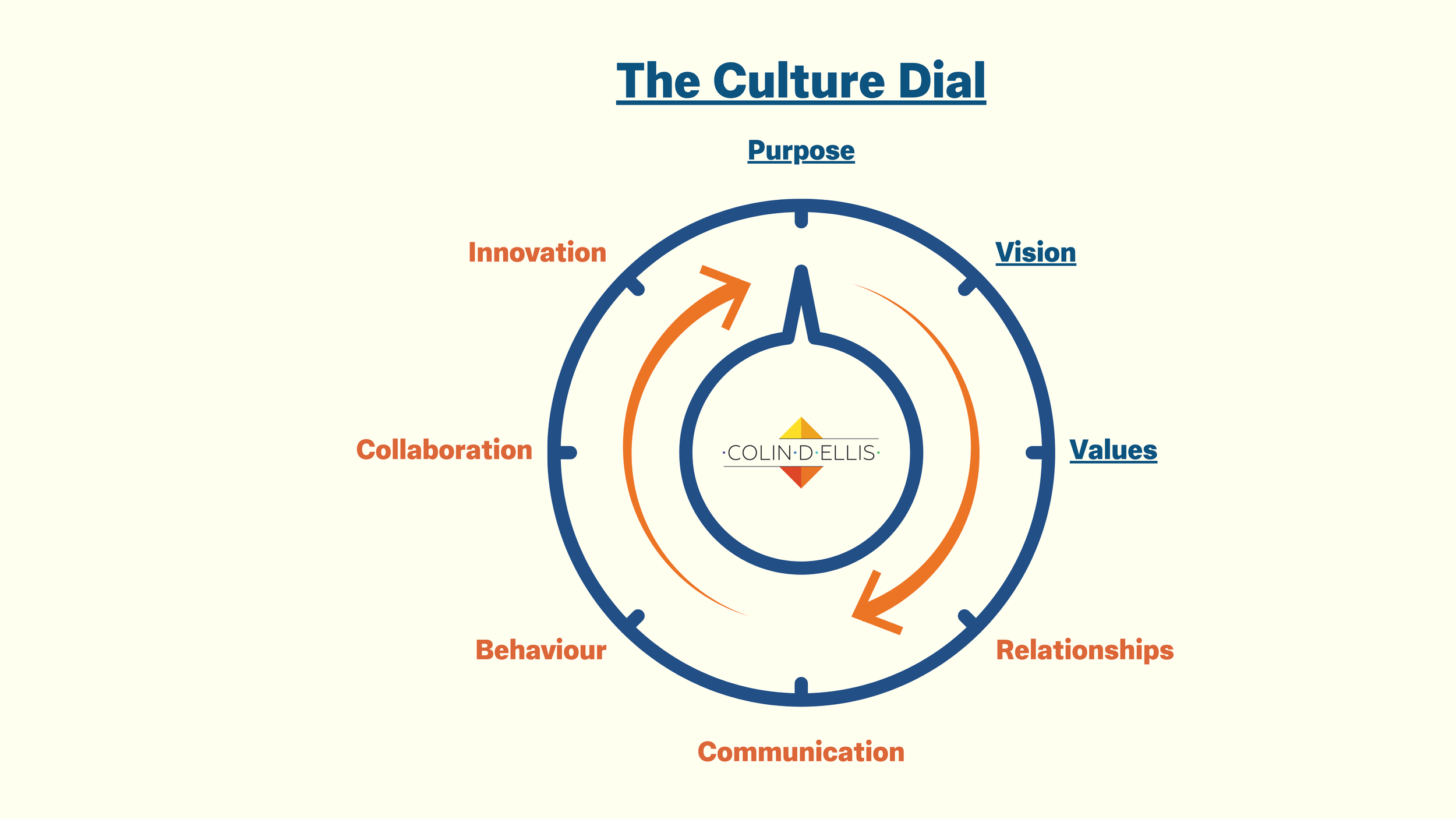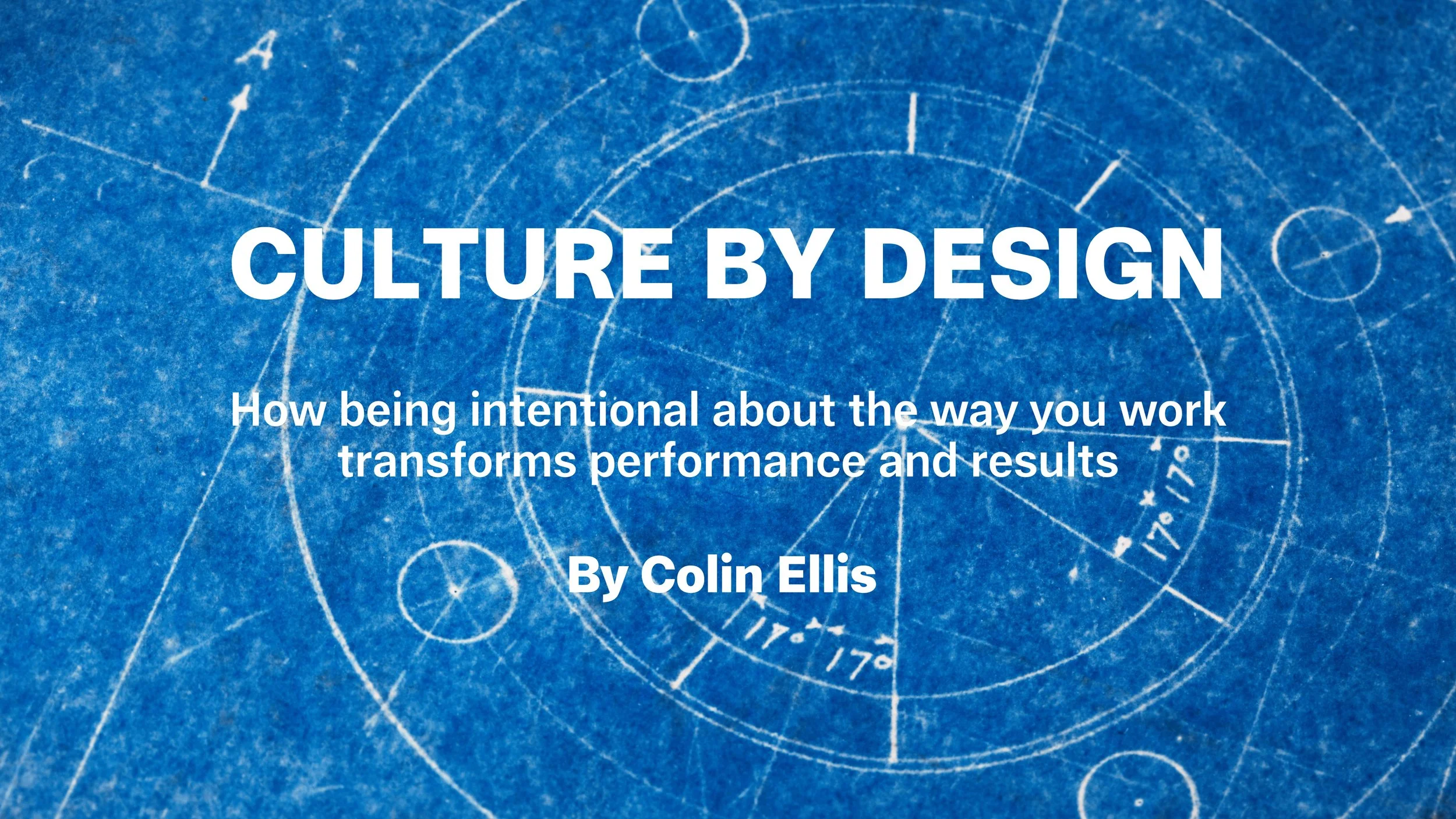Great cultures have these 8 things in common
Many leaders and managers talk about the need for culture change; and the key to being able to successfully design and implement the required future state, starts with an understanding of the elements of culture, a model that I call The Culture Dial™.
My research and work around the world over the last 10 years found that consistently successful organisations put time, thought and effort into the following elements of culture, which they can then ‘dial’ up and down as required to achieve success. They are as follows:
Purpose is the reason an organisation exists and is a short statement of the good that it wishes to do. It is the ‘north star’ and is strongly linked to its reputation and brand. Purpose guides strategy and rarely changes.
Vision is a short statement that sparks inspiration and motivation towards the achievement of the purpose. The vision is the basis for day-to-day decision-making and is refreshed with each strategy.
Values are like fingerprints. Each value is a short statement and they are unique to your business. They differentiate you from the competition and they are the things you use to hire and fire. They change as the organisation grows.
All three of these elements are built and defined at an enterprise level. When done well they speak to our limbic system - they spark feelings - and set the tone for the work that needs to be done by managers at a team level in order to actively live them.
Managers need to be good at building relationships and understanding between people. Understanding self and others is the foundation for all teamwork. It generates empathy, kindness, compassion and respect. The sharing of diverse perspectives and views enhances relationships.
Communication is a very specific skill that very few of us master organically. It recognises that different personalities and generations communicate in different ways. If managers’ words are to have an impact they need to understand how to deliver a message so that everyone understands it.
In a perfect world everyone would know how to behave to get the job done efficiently and respectfully, unfortunately that’s not always the case. Also, the behaviours required to be successful can differ from team to team. Managers need to not only understand how to dial behaviours up and down but also to deal with those that get in the way of productive work.
Psychological Safety is not an element in and of itself, however, it’s critically important and can only exist where there are agreements made on behaviour.
Collaboration is the art of working together. Different goals require different actions. Managers orchestrate how people cooperate ensuring that communication is effective and that timely decisions are made to maintain momentum.
Finally, managers ensure that creativity remains a focus to drive future innovation whilst also establishing an environment where failure is seen as a learning opportunity, rather than a stick to beat people with. Innovation isn’t just the creation of big ideas through AI, it’s the mechanism whereby we continually tweak how we work to be the best it can be.
When managers intentionally build these elements with their teams it generates belonging, engagement and provides the basis for feedback and a commitment to each other, which is where consistent high performance is achieved.
When leaders and managers understand how to ‘dial’ the elements of culture up and down, priorities are clear, burn out is reduced and goals are achieved through happy staff. Which organisation or team doesn’t want that?
To download a .PDF version of this document, head to www.colindellis.com/culture-by-design or click the image below.



